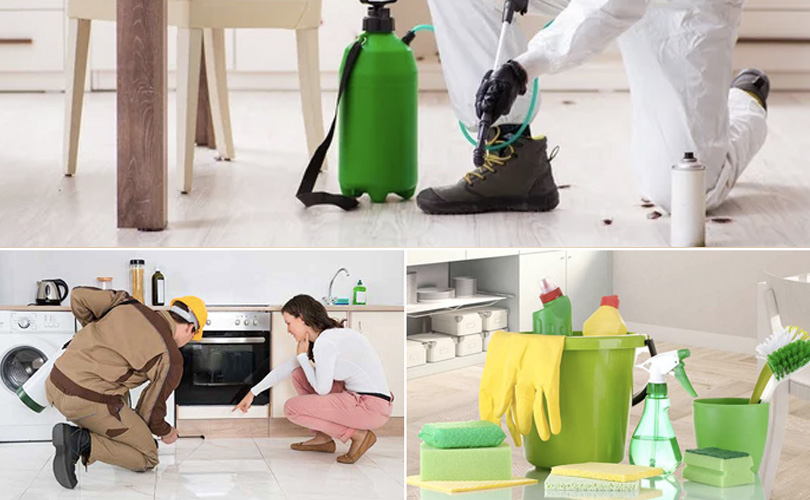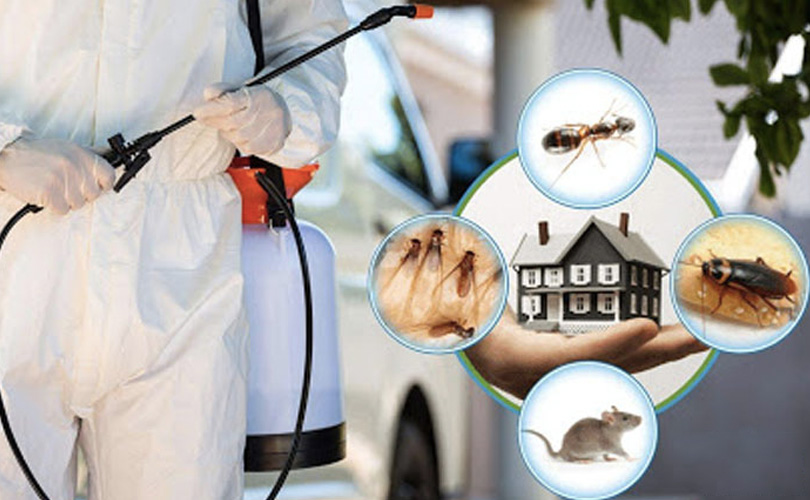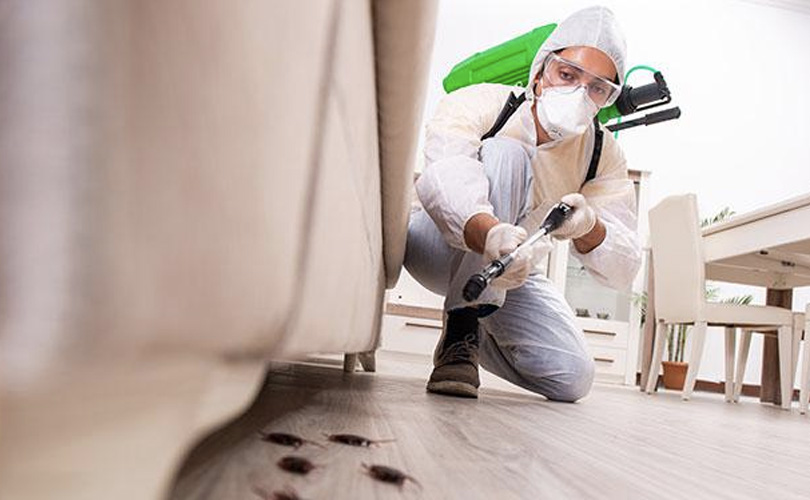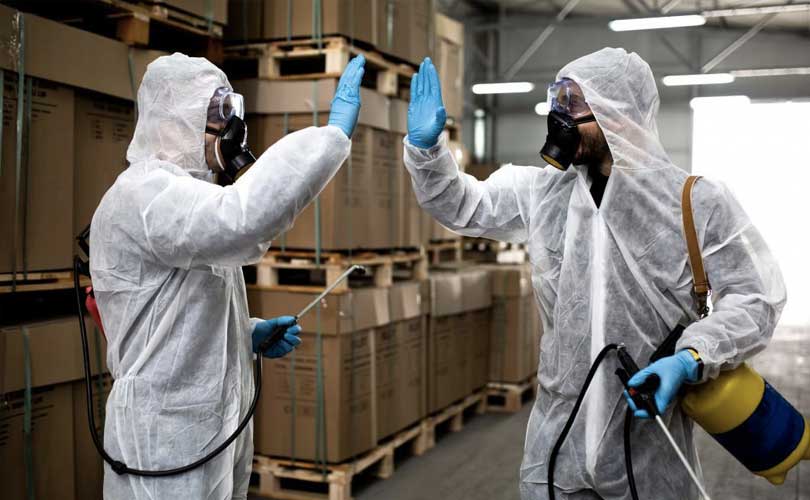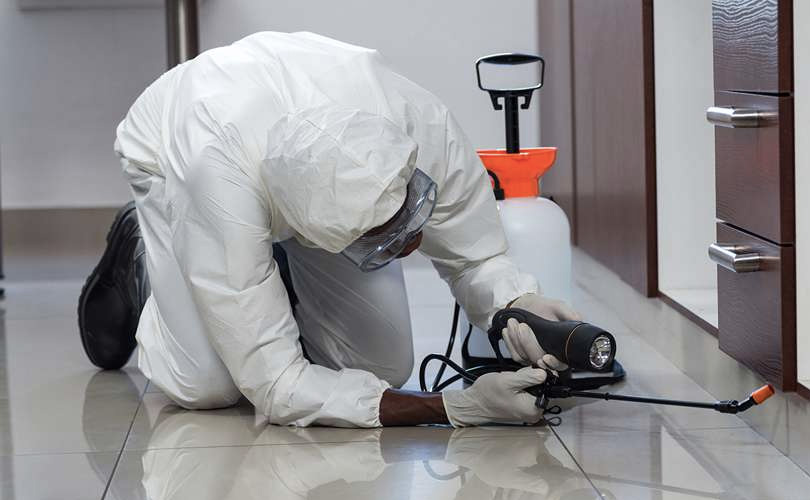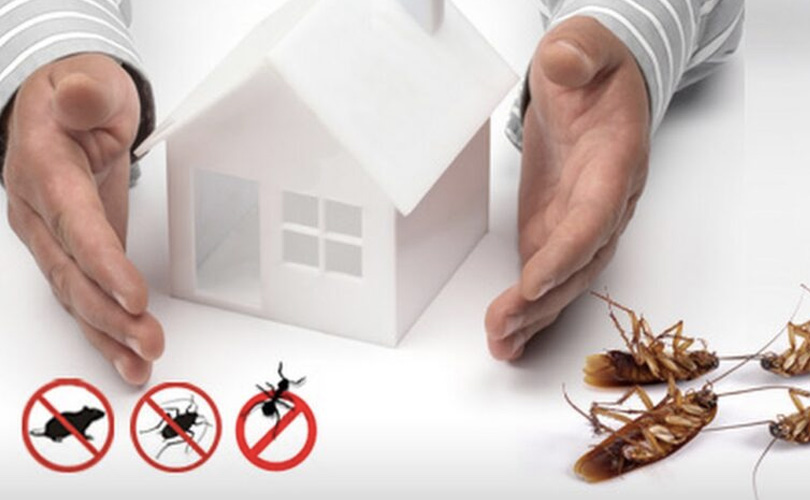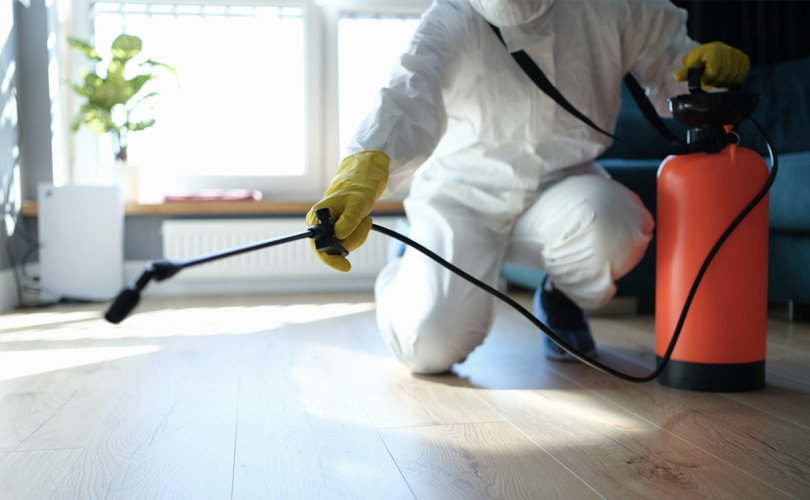Common Household Pests and Their Dangers
Cockroaches: More than Just a Nuisance
Cockroaches are not only unsightly; they are also carriers of harmful bacteria, causing food poisoning and allergies. Their rapid reproduction and ability to hide in tiny crevices make them challenging to eliminate without professional assistance.
Termites: The Silent Destroyers
Termites can silently eat away at the wooden structures of your home, leading to costly repairs and compromised structural integrity. Timely intervention by pest control experts is essential to protect your property from these silent destroyers.
Rodents: Health Hazards in Disguise
Rodents, such as rats and mice, are notorious for spreading diseases and causing damage to electrical wires and insulation. Their rapid breeding nature can lead to a full-blown infestation if not addressed promptly.
Ants: Tiny Troublemakers
While ants might seem harmless individually, they can invade your home in large numbers and contaminate your food. Some ant species can also cause property damage by nesting in wall voids.
Professional Pest Control Services: The Need and Benefits
Expert Assessment and Customized Solutions
Professional pest control companies start by conducting a thorough inspection of your property to identify the specific pest problems you're facing. They then create customized treatment plans to address these issues effectively.
Safe and Environmentally Friendly Practices
Reputable pest control services prioritize safety, using eco-friendly products and methods to eliminate pests without harming the environment or endangering your family's health.
Long-Term Pest Management
Professional pest control is not just about temporary fixes. It focuses on long-term management, ensuring pests stay out of your home for an extended period.
Time and Cost Savings
DIY pest control can be inconvenient and unsuccessful. Hiring professionals not only saves time but also reduces the risk of recurring infestations, ultimately saving you money on repairs and replacement costs.
DIY vs. Professional Pest Control: Making the Right Choice
Pest infestations can be a distressing experience for homeowners, and it's natural to want to address the issue as quickly as possible. When faced with pests like cockroaches, termites, rodents, or ants invading your living space, you might wonder whether to handle the problem yourself or seek the expertise of a professional pest control service. Both choices offer advantages and disadvantages, and the best option relies on several criteria.
DIY Pest Control
DIY, or Do-It-Yourself, pest control involves using readily available products and methods to tackle pest infestations without hiring professional assistance. Here are some key points to consider when opting for DIY pest control:
Cost-Effective: DIY methods are often perceived as cost-effective since you don't have to pay for professional services. However, the effectiveness of DIY solutions can vary, and you might end up spending more money on repeated attempts or damage repair.
Immediate Action: With DIY pest control, you can take immediate action as soon as you notice a pest problem. This can be beneficial in preventing the infestation from worsening.
Limited Expertise: DIY methods might lack the expertise required to deal with certain pests effectively. Some pests, like termites or extensive rodent infestations, demand specialized knowledge and equipment that homeowners might not possess.
Safety Concerns: DIY products can be harmful if not used correctly. It's essential to read and follow the instructions carefully to avoid any health risks to yourself, your family, or your pets.
Short-Term Solutions: DIY methods often provide short-term solutions and might not address the root cause of the infestation. This can lead to the pests returning and the problem persists.
Professional Pest Control
Professional pest control services involve hiring experienced technicians who are trained to identify and address various pest issues. Here's why opting for professional pest control can be the right choice:
Expert Assessment: Pest control professionals conduct a thorough inspection of your property to identify the type of pests, the extent of the infestation, and the factors contributing to the problem. This aids in the development of a targeted treatment strategy.
Customized Solutions: Based on the inspection, professionals create a customized treatment plan tailored to your specific pest problems. This ensures a more effective and long-term solution.
Safe and Environmentally Friendly: Reputable pest control companies prioritize safety and use eco-friendly products and methods that are safe for your family and the environment.
Long-Term Management: Professional pest control is not just about quick fixes. It focuses on long-term pest management, ensuring the pests stay out of your home for an extended period.
Time and Cost Savings:
While professional services come at a cost, they can save you time, effort, and money in the long run by preventing recurring infestations and property damage.
Making the Right Choice
When deciding between DIY and professional pest control, consider the following factors:
Type of Pest: Some pests are more challenging to handle and require professional expertise. If you're dealing with termites, bed bugs, or an extensive rodent infestation, professional help is recommended.
Extent of Infestation: DIY methods may work for minor pest problems, but if the infestation is severe or widespread, professional intervention is necessary for effective eradication.
Health Risks: Certain pests, like rodents or stinging insects, can pose health risks. If the pests in question are hazardous, it's best to leave the treatment to professionals.
Personal Comfort: Some homeowners might be uncomfortable handling pests on their own, making professional assistance a more suitable option.
Choosing the Right Pest Control Service Provider
When faced with a pest infestation in your home, selecting the right pest control service provider is essential to ensure effective and safe pest management. With numerous companies offering pest control services, it can be overwhelming to make the right choice. To ensure you hire a reputable and reliable pest control provider, consider the following factors in detail:
Reputation and Reviews: Research the reputation of the pest control companies you are considering. Look for online consumer reviews and feedback. A company with a positive reputation and satisfied customers is more likely to provide quality services.
License and Certifications: Verify that the pest control company holds the necessary licenses and certifications to operate in your area. Licensed technicians undergo training and adhere to industry standards, ensuring a higher level of expertise.
Range of Services Offered: Consider the range of pest control services offered by the company. A comprehensive service provider should be able to address a wide variety of pest issues, including insects, rodents, termites, and more.
Customer Support and Guarantees: Evaluate the level of customer support provided by the company. A reliable pest control provider will be responsive to your inquiries and offer guarantees on their services, ensuring your satisfaction.
Safety Measures: Inquire about the safety measures employed by the pest control company. Ensure they use eco-friendly and safe pest control methods that won't pose risks to your family, pets, or the environment.
Experience: Consider the experience of pest control technicians. An established company with experienced professionals is likely to have a better understanding of various pest issues and how to effectively deal with them.
Insurance Coverage: Ensure that the pest control company has liability insurance. This protects you from any damages that may occur during the pest control process.
Transparency and Communication: Look for a company that is transparent in its communication and pricing. Avoid companies that provide vague or unclear information about their services and costs.
References and Recommendations: Request references from the pest control company and reach out to past clients to inquire about their experience with the services provided.
Response Time: Consider the company's response time to your inquiries and service requests. Prompt and efficient service is crucial, especially when dealing with pest infestations.
Professionalism: Observe the professionalism of the pest control technicians. They should be courteous, knowledgeable, and willing to answer any questions you have about the pest control process.
Integrated Pest Management (IPM) Approach: Inquire if the company follows an Integrated Pest Management approach. IPM focuses on minimizing the use of chemicals and emphasizes natural pest control methods, prioritizing environmental safety.
The Process of Professional Pest Control
Professional pest control is a systematic approach undertaken by trained technicians to identify, manage, and eliminate pest infestations effectively. This process involves several steps, each crucial in ensuring the safe and thorough eradication of pests from your home or property. Here is a detailed explanation of the process of professional pest control:
1. Inspection and Identification:The first step in the process is a thorough inspection of the affected property. Pest control experts carefully examine both the interior and exterior areas to identify the type of pests present, the extent of the infestation, and any contributing factors. They look for signs of pest activity, nests, droppings, and damage caused by the pests.
2. Treatment Plan Development:Based on the findings from the inspection, the pest control technicians develop a customized treatment plan tailored to address the specific pest issues identified. The treatment plan takes into account the type of pests, the level of infestation, and the unique characteristics of the property.
3. Implementation of Pest Control Measures:With the treatment plan in place, the pest control team begins the application of appropriate pest control measures. The methods used may vary depending on the pests being targeted and can include chemical treatments, baits, traps, physical barriers, and preventive measures.
4. Safe and Environmentally Friendly Practices:Reputable pest control companies prioritize the safety of their clients and the environment. They use products and methods that are approved and safe for humans and pets when applied correctly. Eco-friendly pest control solutions are preferred whenever possible to minimize the impact on the ecosystem.
5. Follow-Up and Monitoring:Pest control is not a one-time event. After the initial treatment, follow-up visits are scheduled to ensure that the pest problem has been effectively addressed. Technicians monitor the property to check for any signs of pest activity and take additional measures if required.
6. Educating the Homeowner:As part of the process, pest control experts may educate the homeowner about the pests' behavior, potential entry points, and preventive measures to avoid future infestations. This empowers homeowners to take proactive steps in maintaining a pest-free environment.
7. Documentation and Reporting:Throughout the process, pest control technicians maintain detailed records of the inspection, treatment plan, and actions taken. This documentation helps track the effectiveness of the treatment and serves as a reference for future services.
8. Continued Support:Reputable pest control companies often offer continued support and periodic maintenance visits to ensure that the property remains pest-free. They may guide pest prevention practices and respond promptly to any new pest issues that may arise.
Pest Prevention Tips for Homeowners
Pests can quickly become a nuisance in our homes, disrupting our daily lives and causing property damage. It is critical to keep pests out of your home to maintain a safe and healthy living environment. By following these pest prevention tips, homeowners can minimize the risk of infestations and enjoy a pest-free home.
1. Maintain Cleanliness and HygieneOne of the most effective ways to prevent pests from invading your home is by maintaining cleanliness and good hygiene practices. Pests are attracted to food sources, so keeping your living spaces clean and free of food debris will discourage them from settling in. Regularly sweep, mop, and vacuum floors to remove crumbs and spills. Make sure to clean up spills promptly and store food in airtight containers to avoid attracting pests like ants, cockroaches, and rodents.
2. Seal Entry PointsPests can enter your home through the smallest gaps and crevices. Inspect your doors, windows, walls, and foundation for any gaps or holes that pests could use as entry points. Seal these openings with caulk or weather stripping to prevent pests from sneaking in. Pay special attention to gaps around pipes, vents, and utility lines, as pests often use these routes to gain access to your home.
3. Proper Food StorageStoring food properly is crucial in deterring pests from your home. Keep pantry items in sealed containers made of glass or sturdy plastic to prevent pests like ants and pantry moths from infesting your food supply. Pet food should also be stored in sealed containers, as open bags can attract pests such as rodents. Additionally, regularly clean pet food bowls and avoid leaving pet food out overnight.
4. Regular Maintenance and RepairsPests are attracted to areas with standing water and dampness. Repair any leaks in your plumbing, including faucets, pipes, and gutters, to eliminate potential water sources for pests. Keep your home well-maintained by fixing cracks in walls, ceilings, and floors, as pests can use these as hiding spots and entry points. Trim trees and bushes away from your home's exterior to prevent pests from using branches as bridges to access your house.
5. Remove Clutter and DebrisClutter supplies pests with hiding places and breeding grounds. Regularly declutter your home and yard to eliminate potential habitats for pests. Keep storage areas organized, and avoid accumulating piles of newspapers, cardboard, or other materials that pests could use to build nests. If you have a backyard or garden, remove debris and maintain a well-kept landscape to reduce pest-hiding spots.
6. Pest-Resistant PlantsConsider planting pest-resistant plants around your home to naturally deter pests. Some plants, like lavender, peppermint, and marigolds, have natural pest-repelling properties. Planting these around entry points or in your garden can help keep pests away. Additionally, some herbs like basil and rosemary can be grown indoors and used in cooking while acting as natural pest deterrents.
7. Regular InspectionsInspect your home regularly for evidence of pest activity. Look for droppings, gnaw marks, shed skins, or any other evidence of pests. Catching a pest problem early allows you to take prompt action and prevent the infestation from spreading. If you notice any signs of pests, contact a professional pest control service to assess the situation and recommend appropriate treatments.
8. Educate YourselfStay informed about the common pests in your area and their habits. Knowing what pests to look out for and understanding their behavior can help you take preventive measures effectively. Educate yourself on DIY pest prevention techniques and when it's best to seek professional help.
The Environmental Impact of Pest Control
Pest control is essential for maintaining a healthy living environment and protecting our homes from the dangers posed by various pests. However, the methods used for pest control can have a significant impact on the environment. It is crucial to strike a balance between effectively managing pests and minimizing adverse effects on the ecosystem. In this section, we will explore the environmental impact of pest control and discuss eco-friendly solutions that help preserve our natural surroundings.
1. Chemical Pesticides and Their Consequences
Chemical pesticides have long been a popular choice for pest control due to their effectiveness in eradicating pests quickly. However, these pesticides can have detrimental effects on the environment. When sprayed outdoors, they can drift into water bodies, soil, and air, contaminating them. This contamination can harm aquatic life, beneficial insects, birds, and other wildlife.
Moreover, the continuous use of chemical pesticides can lead to the development of pesticide-resistant pests, necessitating even stronger chemicals and exacerbating the environmental impact. Runoff from agricultural areas treated with pesticides can also leach into groundwater, affecting drinking water sources and further polluting the environment.
2. Eco-Friendly Pest Control Solutions
The eco-friendly pest control solutions available:
Botanical Pesticides
Botanical pesticides are derived from plants and have low toxicity to humans and animals. Neem oil, pyrethrin, and diatomaceous earth are a few examples. These substances are biodegradable and have a reduced impact on the environment.
Insect Growth Regulators (IGRs)
IGRs disrupt the development of insects, preventing them from reaching maturity and reproducing. They are highly targeted and have minimal impact on non-target organisms.
Biological Pesticides
Biological pesticides are made from living organisms, such as bacteria, fungi, or viruses, that specifically target certain pests. They are non-toxic to humans and wildlife, making them environmentally friendly options.
The Importance of Public Awareness
Promoting public awareness about the environmental impact of pest control is crucial. Educating homeowners, farmers, and businesses about the benefits of eco-friendly pest control practices encourages a more sustainable approach to managing pest issues.

